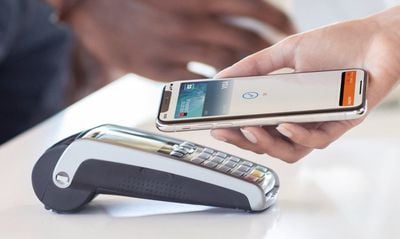Apple Pay is officially going live in 13 additional countries today, including Greece, Portugal, Romania, and Slovakia, bringing Apple's mobile payment system to millions more users across Europe.

Finally #ApplePay is available in Romania 🙏 pic.twitter.com/pgjZUJjPWX — Ciprian Redinciuc (@cyupa89) June 26, 2019
In Slovakia, for example, users can already load cards onto their Apple Wallet from Boon, Edenred, J&T Banka, Monese, N26, Revolut, Slovenska sporitelna, Tatra banka, and mBank.
It's a similar story in many more countries, based on screenshots posted by Apple users on social media this morning.
Apple Pay now also appears to support a number of popular bank cards across Bulgaria, Croatia, Cyprus, Estonia, Greece, Latvia, Liechtenstein, Lithuania, Malta, Portugal, Romania, and Slovenia.
Ahoj #applepay! Welcome to Slovakia and welcome to George!#ApplePaySlovakia #BankingHasAName pic.twitter.com/b77E5KJNFl — George (@myGeorgeWorld) June 26, 2019
Apple Pay has been gradually expanding across Europe and the Middle East, launching in Poland, Norway, Kazakhstan, Belgium, Germany, Czech Republic, Saudi Arabia, Austria, and Iceland over the last year.
The mobile payment system allows iPhone 6, 6s, 6, 7, 8, 6 Plus, 6s Plus, 7 Plus, 8 Plus, SE, X, XS, XS Max, and XR users to make payments for goods and services in retail stores using an NFC chip built into their iPhones.
Apple CEO Tim Cook said in March that Apple Pay would be available in more than 40 countries and regions by the end of 2019, although Apple's website has yet to be updated with the full list. Apple Pay first launched in the United States in October 2014. You can view the full list of Apple Pay countries and regions on Apple’s website.
Update: Sparkassen and Volksbanken banks in Germany will also support Apple Pay later this year. (Thanks, Kai!)





















